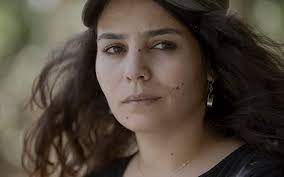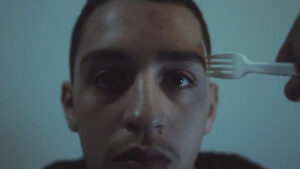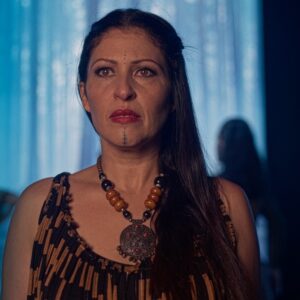In spite of its name, DOK Leipzig is not just one of the foremost festivals devoted to documentaries; the event is also a showcase for animation, and the pairing makes a lot of sense.
As we discussed last year in our interview with festival head Christoph Terhechte, those are the two cinematic storytelling forms that are – sometimes dismissively – mislabeled as genres, as opposed to creative modes within which multiple genres can exist.
Occasionally, the two forms overlap: Waltz with Bashir springs to mind, as does one of Leipzig’s 2022 entries, Alain Ughetto’s No Dogs or Italians Allowed. Ostensibly the film is a somewhat romantic comedy-drama about an Italian family’s struggles when work demands and the rise of fascism forces them to relocate abroad, but it is in fact a retelling of the life story of the director’s own grandfather, made via stop motion, and with Ughetto himself in the frame as he moves the props and puppets in between shots.
While not entirely similar in approach, Asmae El Moudir’s The Mother of All Lies, playing at the festival this year, also accomplishes a blend of the two creative outlets. It was first screened in Cannes, where it won the Best Director award in the Un Certain Regard section (a detail that amused El Moudir, since part of the film revolves around her grandmother refusing to acknowledge her chosen profession as a filmmaker). It has been a hit on the festival circuit and was recently chosen as the Moroccan submission for the Academy Awards in the International Feature Film category.
Much like Ughetto last year, El Moudir, who spent eight years making the film, sets out to tell her own family’s history. And in the absence of any proper visual archive, she decides to create her own, constructing a miniature replica of her neighborhood and populating it with figurines, all made with help from her father. It is not strictly speaking animation, certainly not as most viewers would perceive it, but the process does have echoes of the stop motion world, as the director resorts to miniaturized fiction to put her family’s recollections on the record.
We reached out to El Moudir, who sent the following comments via social media. “My connection to animation stems from the fact I always tell my stories through the lens of children’s naivety. That’s why, both in short and feature-length format, my cinematic tools draw inspiration from the world of animation, which is more colorful. I don’t use it in its finished form, but rather a rough, realistic version that connects to my documentary approach.”
Her words sum up the exquisitely hybrid nature of her work, a slice of cinéma du réel that nevertheless employs some fiction, albeit with good intentions (the original Arabic title translates as White Lies), along with a story of real people where the live-action gaps are filled in by crude animation tools. In short, it’s the ideal embodiment of DOK Leipzig’s dual mission statement, as the meeting point of two cinematic modes – not genres – that can intertwine in the most interesting ways.

.png)





